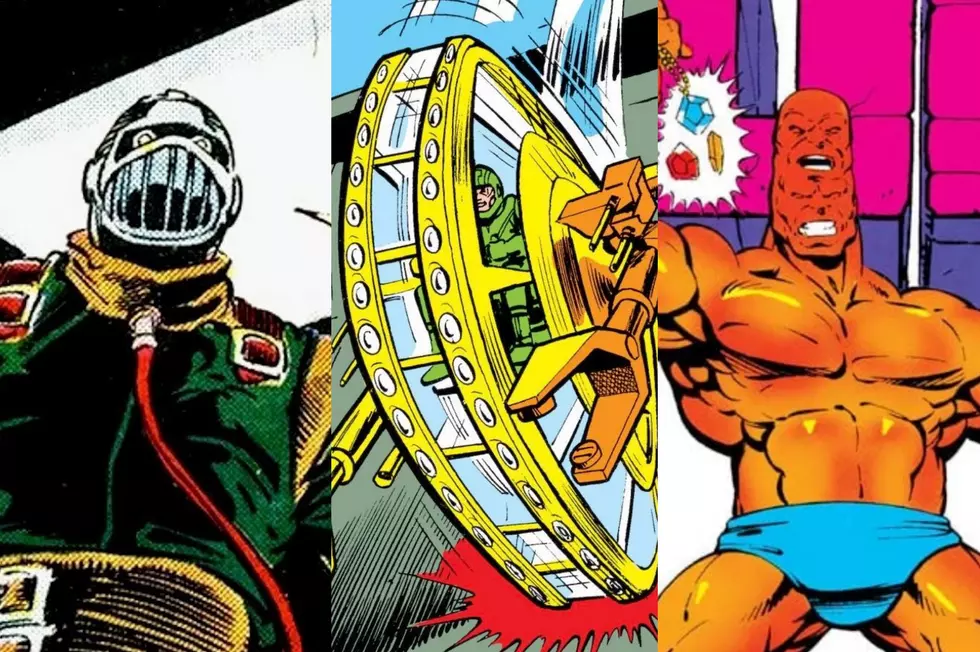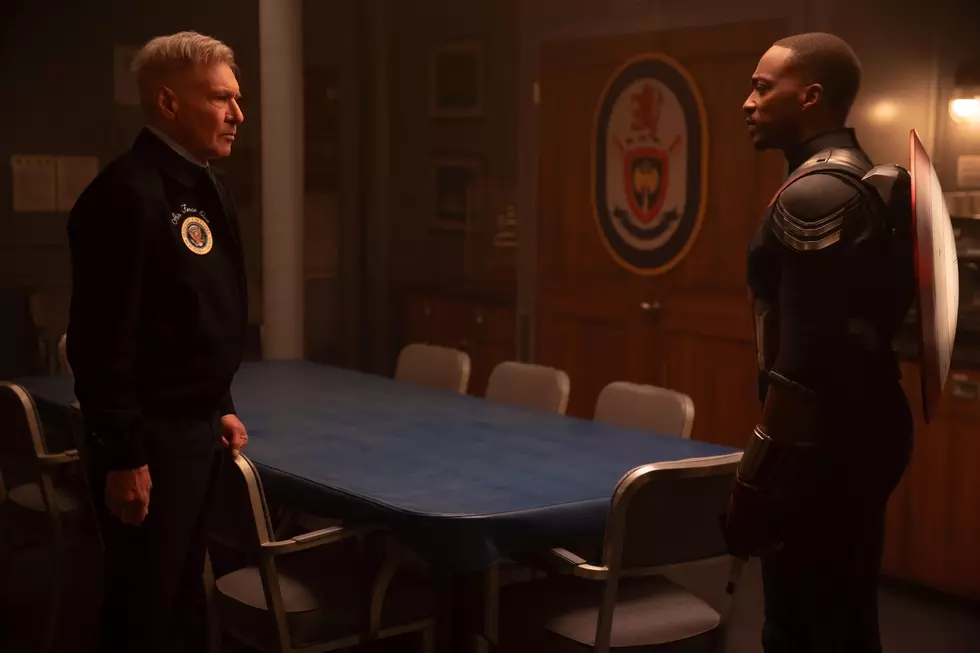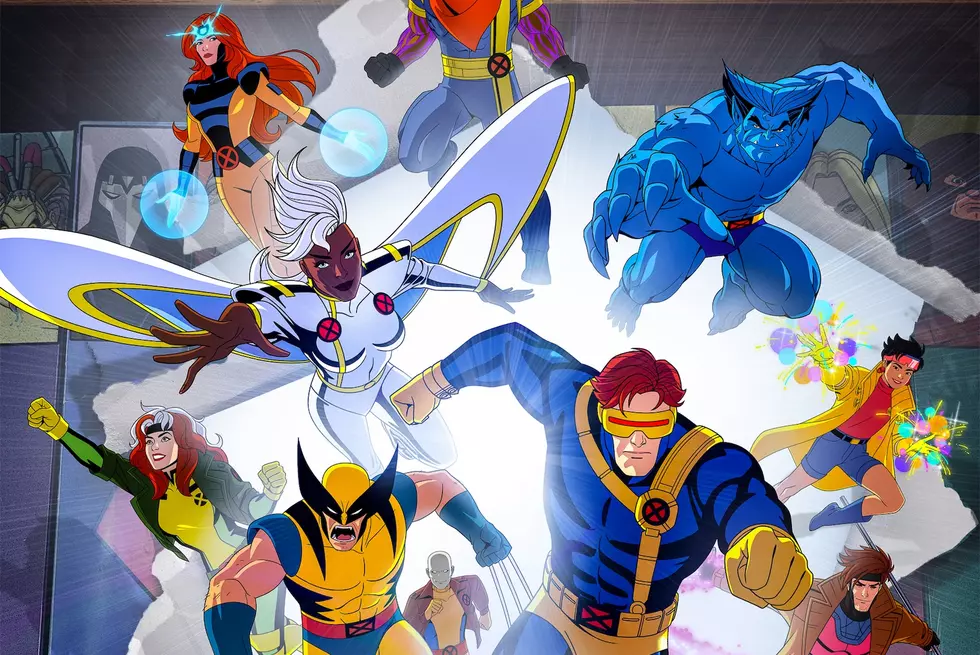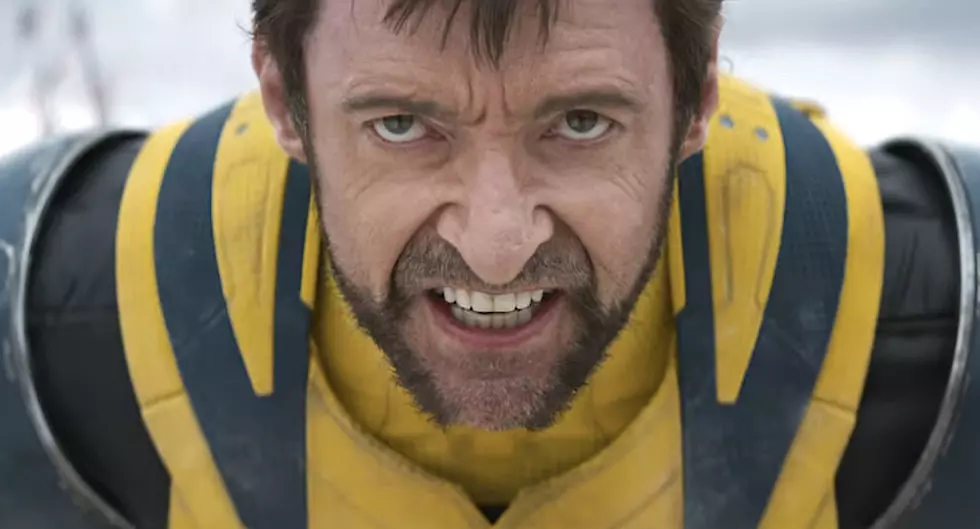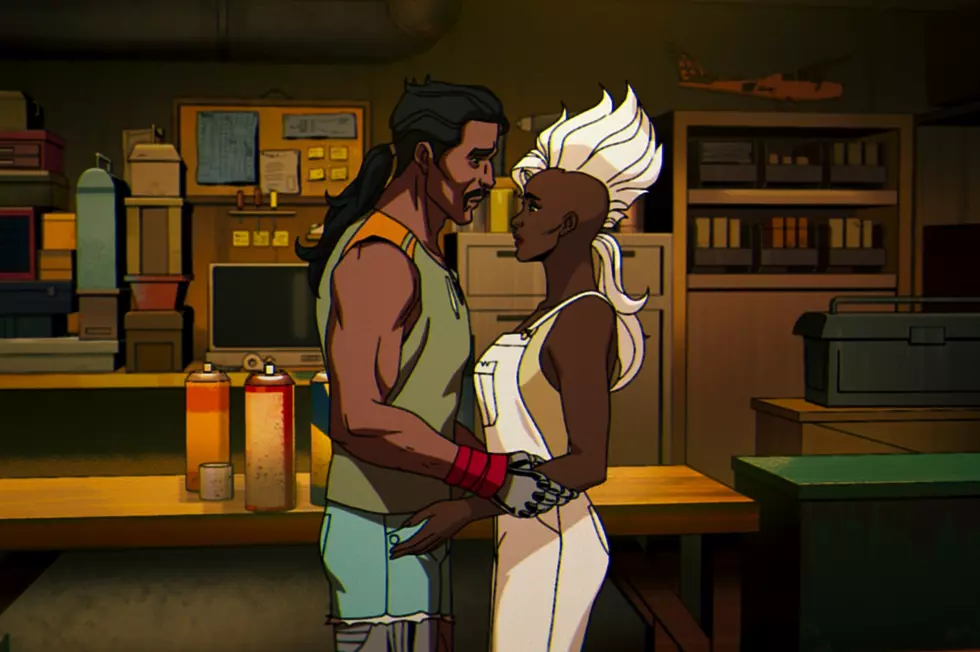
Flame Off: Will Gay Superheroes Ever Make the Leap to Movies and TV?
It's San Diego Comic-Con 2013, and ‘The Amazing Spider-Man 2’ stars Andrew Garfield, Dane DeHaan and Jamie Foxx are sitting next to their director, Marc Webb, on the Hall H stage, ready to face the thousands of comic book and movie fans in attendance during a Q&A. A kid, maybe in his late teens, makes his way up to the mic and addresses a question to Garfield himself. Identifying himself as a gay Asian American, he wanted to know if the actor felt any pressure in making his stance on LGBT equality known, referring to previous comments made by the actor.
Earlier that year, a set visit report on ‘The Amazing Spider-Man 2’ was published in Entertainment Weekly, which quoted Garfield as saying, "Why can’t we discover that Peter is exploring his sexuality?," even pointing out the "charismatic and talented" Michael B. Jordan could join in for some "interracial bisexuality."
To the applause of many at Comic-Con, Garfield addressed the question by saying, “Spider-Man stands for everybody: black, white, Asian, gay, straight, lesbian, bisexual.” This has been the appeal of superheroes since the early generation of geeks dropped dimes for the latest issue of Action comics, but when it comes to the movie iterations, many minorities are left out. Garfield, while valid in his statements, even backtracked a bit, saying, “It wouldn’t make sense if, in the next movie, I was suddenly with a black guy.”
It's now a year after this panel took place, on our way to another Comic-Con, and the question of why there aren't more LGBT superheroes -- or even characters -- in these comic book movies and TV shows are continuously met with the same excuses.
While major strides are being made in the 'Arrow' universe -- the hit CW series featured a lesbian character through Katrina Law's Nyssa Al Ghul, while 'The Flash' spinoff series will feature two gay characters in the first season alone, on top of openly gay actor Wentworth Miller portraying DC villain Captain Cold -- there is still no identifiable LGBT character taking the reins for a major role, or even a major recurring or supporting role. When the opportunity for this came with NBC's 'Constantine,' producers of the series stated at a recent Television Critics Association panel that they had "no immediate plans" to address the Hellblazer's bisexuality, despite John Constantine's depiction as such in the original comics. Executive producer Daniel Cerone even acknowledged the character's background, though seemingly suggested his sexual orientation didn't matter in regards to Constantine as an individual.
In those comic books, John Constantine aged in real time. Within this tome of three decades [of comics] there might have been one or two issues where he’s seen getting out of bed with a man.
Where once this excuse -- that we're all equal, so sexuality shouldn't be an issue -- in keeping LGBT characters out of this superhero cinematic arena seemed admirable in its progressive nature, it's now a broken record the community has heard one too many times. Dare I say it, but maybe a character's sexuality should matter more.
In the early days of superhero fanaticism, comic books were seen as taboo, some even going as far as to link the fanboys of generations past to pedophilia, but in the modern age, geekdom is more linked to pop culture than ever, and we're seeing that in the diverse characters that are being created. As the wave of support for LGBT rights continues to climb, more characters have come out as gay in the comic-verse -- Alan Scott, DC's original Green Lantern, came out as gay, while 'X-Men' introduced readers to a gay wedding, and Bob Kane and Sheldon Madoff's lesbian 'Batgirl' became a hit among readers. Heck, even Marvel's new female Thor and African-American Captain America are tributes to cultural shifts. But where the comic books have come leaps and bounds, their accompanying movie and TV adaptions continue to fall short.
As Andrew Wheeler of Comics Alliance pointed out, in the vast space that is the Marvel Cinematic Universe, which encompasses the nine already-released feature films, three Marvel One-Shot short films and one TV series, there's only one character who's clearly depicted as LGBT: 'Iron Man 2' villain Justin Hammer (Sam Rockwell). But here's the issue: the only purposes his newfound sexual identity serves is to further demean and reduce him to a stereotypical shell of a person. His presence only serves as comedic relief, a role gay characters frequently serve, while his "outing" is the final nail in the coffin, as if to say, "He got what he deserved by succumbing to 'prison bitch' life."
Apparently, when it comes to having more positive gay representations on the superhero-dominated big screen, it's just as Hammer says:
But Marvel shouldn't take all the blame, it's just one of the most recognizable procurers of cinematic heroes. Warner Bros. and DC are equally condemnable with their 'Man of Steel'-led cinematic universe, while finding an openly gay character in Sony and Fox's Marvel haystacks is no easy task, either. At the very least, the X-Men, like the comics, can arguably be seen as a metaphor for LGBT oppression, and even one of the most recognizable gay figures, Ian McKellen, portrays a leading character, but I, for one, am tired of reading between the lines in order to see LGBT life reflected in these characters. Those were reserved for the days when we were fully oppressed.
Much as Andrew Garfield sees Spider-Man standing for a melting pot of fans, like the one who spoke up at Comic-Con, so too must the films that depict him. In Hollywood's defense, outcry for more diverse characters has been acknowledged, hence the spotlight placed on Scarlett Johansson's Black Widow, Gal Gadot's Wonder Woman, and the rumored Captain Marvel and Black Panther movies in the works. Though, those respective minority voices within the geek community are largely to thank. The trials of women and people of color in joining the straight, white fanboy club have been widely documented, even leaking into media coverage (especially when it comes to the cosplay community), but gay geeks are still, in a sense, in the closet with a collective voice that pales in comparison to the plights affecting the culture at large.
When that Spidey fan came up to the mic at the Con, he not only made his support for Garfield's stance known, but he also made his identity and voice as a gay geek known, and we need more like him to come out as geek. Yes, meeting a comic book-loving LGBT individual might seem to some just as shocking as rising athlete Michael Sam kissing his boyfriend on live television, but we're out there! That should be apparent by scenes and characters in such geek-friendly fare as 'Game of Thrones,' 'American Horror Story' and 'True Blood.' Geeks, especially to those, like Hollywood and the TV networks, not necessarily embedded within the culture, are often depicted as one giant boys club -- maybe because most circles of directors, screenwriters and producers are giant boys clubs -- so the likelihood of seeing more gay characters fill the screen of our favorite cinematic superhero works can only go up with more vocal support from the fans.
When might, say, 'Constantine' finally start addressing the character's sexual identity? In executive producer Daniel Cerone's own words, "In those comic books, John Constantine aged in real time. Within this tome of three decades there might have been one or two issues where he’s seen getting out of bed with a man. So [maybe] 20 years from now?" But on the opposite spectrum, one of the most prominent offenders, Marvel, is already beginning to mend its ways. Marvel Studios President Kevin Feige recently told our own Mike Ryan, "We’re going to keep bringing the movies out the way we envision it and the way we believe in it — and that includes diversity in all of the active films." While he's most likely referring to 'Captain Marvel' and 'Black Panther' films, it's certainly a start.
More From ScreenCrush
